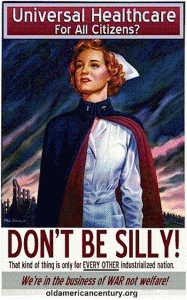 Congress this week reopened the healthcare debate as the Democrat-controlled House and Senate work out a compromise over two separate pieces of legislation. No surprise that a public option will not be in the final bill, primarily due to opposition from conservative Democrats. Legislators nonetheless promise some form of increased competition against insurance providers.
Congress this week reopened the healthcare debate as the Democrat-controlled House and Senate work out a compromise over two separate pieces of legislation. No surprise that a public option will not be in the final bill, primarily due to opposition from conservative Democrats. Legislators nonetheless promise some form of increased competition against insurance providers.
While many industry watchers feel that that insurance lobby succeeded in killing any type of real healthcare reform, Republicans alone will eventually feel the brunt of voter recourse. The GOP was opposed to healthcare reform ever since President Obama first promised an overhaul immediately after taking office early last year.
Coincidentally, Republican Senators who opposed their version of a healthcare bill received an average of nearly 30% percent more political donations from PACs and individual employees of health and health insurance-related groups and companies since 1989. While this figure may be reflective of varying policies among past administrations, the numbers tell a different story, especially given the GOP’s resistance to healthcare reform.
Why isn’t the healthcare lobby taking on more heat? That’s a good question. One possibility is that consumer attitudes towards the insurance industry already are at an all time low. Another reason could be that consumers are powerless against the insurance lobby, a key factor for reform. Regardless, the industry’s political machines have pretty much gone unscathed since Congress took up healthcare reform, yet again, in 2009.
Who’s at risk? Republicans have the most to lose in terms of an electorate backlash, unless their “anti-Obama” strategy works, and the economy tanks even further and healthcare reform ultimately fails. This is unlikely since the economy seems to be turning around and some type of healthcare reform is on track to pass before the president delivers the State of the Union. Until reform is actually in place, right now it’s business as usual for the healthcare lobby as they continue a “stealth” strategy against reform.
